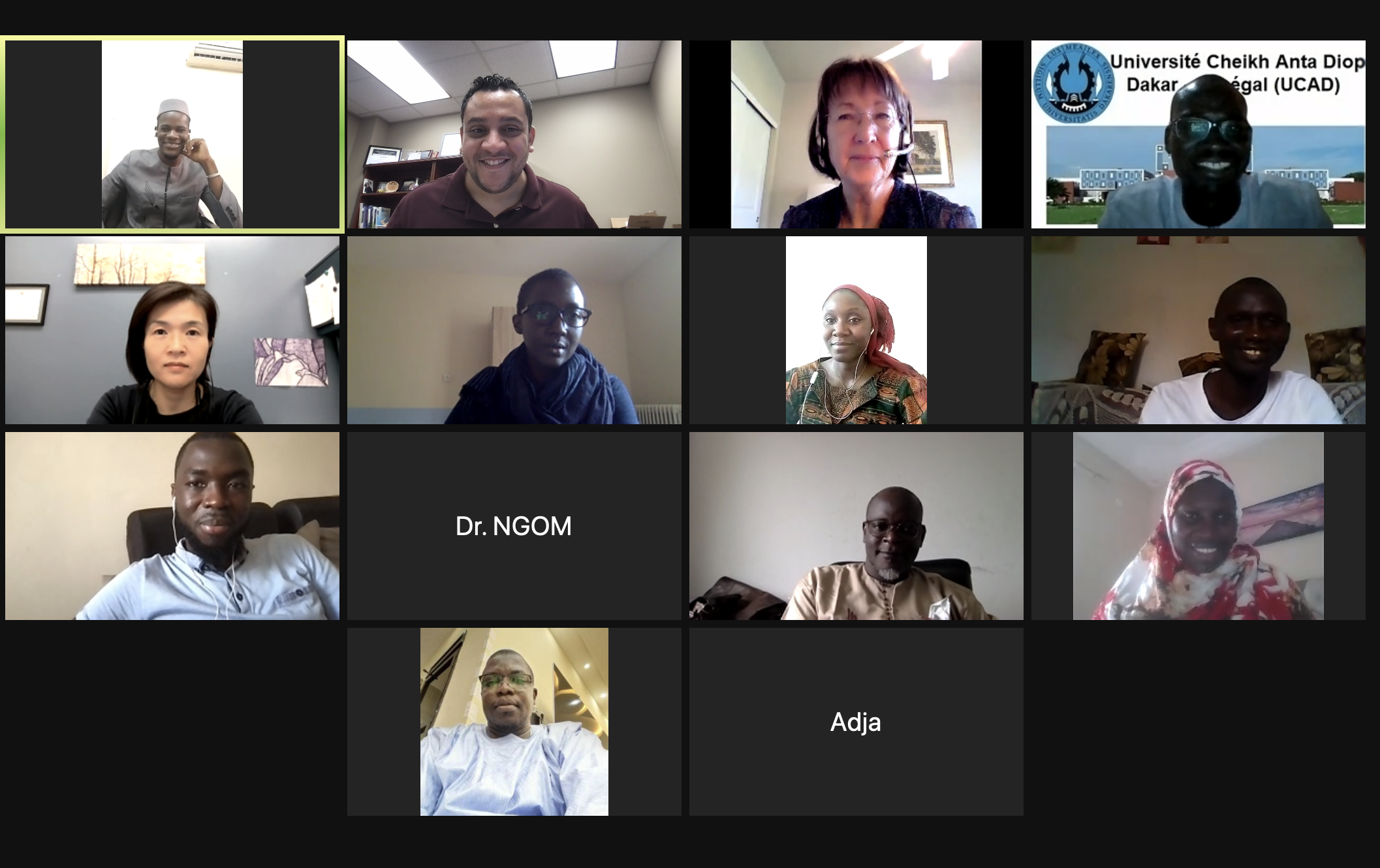
By Mia Azizah | Office of Global Strategies
For the last ten months, the University of Nebraska-Lincoln has hosted several Senegalese faculty for a virtual training program on best practices for teaching science, technology, engineering and mathematics through the University Partnerships Initiative Senegal program.
Funded through a $75,000 grant from the U.S. Department of State’s Bureau of African Affairs, Nebraska partnered with the U.S. Embassy in Senegal to develop the program that enhances the instructional design capacity and expertise of STEM faculty at public universities in Senegal using evidence-based approaches. The comprehensive training program was taught by Tareq Daher, director of the Engineering and Computing Education Core (ECEC), with support from College of Engineering instructional designer Yaoling Wang and learning assessment coordinator Markeya Peteranetz.
“The content and structure of this program was developed from the trainings we offer faculty at the College of Engineering through the Engineering and Computing Education Core,” Daher said.
Through narrated video presentations, readings, online discussion boards and live Zoom sessions, the Senegalese faculty participating in the fellowship gained a variety of instructional strategies and educational tools to enhance their existing courses and teaching strategies. At the end of the program, fellows presented their work to senior leaders from their universities, the University of Nebraska-Lincoln and the U.S. Embassy in Senegal.
“In addition to the impact on the fellows, the success of this program also helped advance our strategic goals at UNL and within the College of Engineering on building collaborations and supporting global partnerships,” Daher said. “Engaging with these Senegalese faculty has opened the door to exploring new partnerships and exchanges with their institutions.”
As a result of the connections built through the UPI Senegal program, leaders from the College of Engineering plan to visit Senegal in early spring 2022 to meet with universities represented in the program and other local partners to continue discussions of ongoing partnerships. The visit will help the college advance its strategic plan by exploring student exchange programs and other collaborations in sub-Saharan Africa.
The UPI Senegal program is also an example of how Nebraska aims to leverage connections between the university’s academic units and international partners to build new global partnerships and networks in alignment with the institutional N2025 Strategic Plan and Forward Together global strategy.
The program was entirely conducted in French, the official language of Senegal and all public universities. The language barrier did not hinder the program's success thanks to interdisciplinary and translation support from the Office of Global Strategies, Department of Modern Languages and Literatures, Bureau of Sociological Research (BOSR) and the Nebraska Translator and Interpreter Corps (NETIC).
“With the help of our partners in the Department of Modern Languages and the Office of Global Strategies, we were able to transform this into an impactful program that was successful in the context of STEM education at Senegalese universities,” Daher said.
Liz Khalil in the Office of Global Strategies served as a critical connector of the program’s cross-campus collaborations to create a comprehensive program. With her background in French, Khalil led the coordination of the program's content translation and played a key role in securing interpretation for the live Zoom sessions. She also credited the program’s success to the support of Nora Martin Peterson, chair of the Department of Modern Languages and Literature; French graduate students Megan Day and Catherine Sypal; and Amanda Ganshert, senior project manager of BOSR.
"This collaboration with Engineering and Modern Languages is a great example of cross-campus partnerships that will grow UNL’s global community,” said Khalil, who received her bachelor's and master's degree in modern languages with a specialization in French. “The Office of Global Strategies celebrates the accomplishments of the participants and looks forward to seeing how these efforts will nurture new academic exchange opportunities.”
The University Partnerships Initiatives Senegal program is funded through a U.S. Department of State Bureau of African Affairs initiative that aims to increase collaboration between U.S. and African universities and build expertise for reciprocal learning opportunities. To learn more about the program, visit the Global Nebraska website.